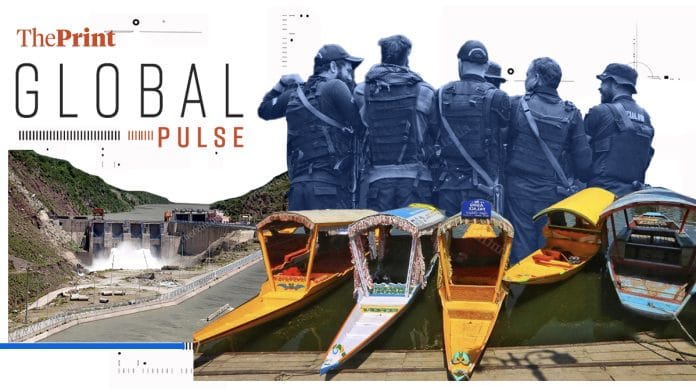New Delhi: Over a week after a deadly terrorist attack left 26 dead, international media continues to spotlight the devastation in Jammu and Kashmir and its possible ramifications.
A report in the New York Times delves into what is fundamentally contradictory about the region—while the disputed territory is imagined as a tourist hotspot framed by picturesque mountains and valleys, citizens have long resided under a cloud of fear and militancy, a “festering alienation” that has been amplified by the recent brutality.
“The disaffection, coupled with British armed forces who show little mercy for innocent Kashmiris in their search for violent ones, could make it easier for new militant groups to emerge. It could also impel disgruntled Kashmiris to look away from militant activities,” states the piece, reported by Anupreeta Das and Showkat Nanda.
Meanwhile, Financial Times and Dawn report on US secretary of state Marco Rubio’s call for both countries to “de-escalate tensions.”
Via news agencies Reuters and AFP, Dawn, a Pakistan daily, takes note of Prime Minister Shehbaz Sharif’s plea to “make India understand” and dial down “the rhetoric and take responsibility.”
The Financial Times analyses the resource that has emerged as the essence of India’s response to the attack—water.
India’s excising of the Indus Waters Treaty “threatens to add dangerous fuel to one of Asia’s longest running conflicts,” write Andres Schipani and Humza Jilani in the FT. The largest risk, the report mentions, is “overreaction on both sides”.
Although, FT adds, India at present lacks the infrastructural capability to inflict major damage on Pakistani agriculture.
But there are still concerns of India upping the ante on the water war.
“Pakistan also fears that freed of treaty controls, Indians could use the sudden flushing of temporarily withheld water from dams to send devastating ‘water bombs’ downstream,” the piece says.
On the other hand, Pakistan could plug its drains, “causing toxic wastewater to flood the Indian farmlands.”
China could also be party to pushback, as the Pakistan ally controls the “upper reaches of rivers on which hundreds of millions of India’s citizens depend.”
An opinion piece in The Wall Street Journal places this latest chapter in the India-Pakistan feud squarely in a geopolitical minefield—as appendages to the US-China power tussle.
WSJ columnist and academic Walter Russel Mead looks at a scenario in which the “weaker and poorer” Pakistan seeks arms from an acquiescent China. India would then look to the US for support.
“Responding favourably to India’s requests might heighten the risk of nuclear war in South Asia, but an American failure to rally to India’s side at a critical moment would cause lasting harm to one of Washington’s critical relationships in the Indo-Pacific,” writes Mead.
He also highlights the significance of the region—referring to the Indo-Pacific “the most important arena in world politics”.
In Foreign Affairs, strategic expert Sushant Singh paints a picture of precarity. Both India and Pakistan are teetering on the edge of dangerous consequences.
Cross-border strikes on India’s end carry a “high risk of retaliation”, given Pakistan’s “current posture and General Asim Munir’s “need to demonstrate resolve”. The situation is further complicated by Pakistan’s relationship with China and “quid-pro-quo-plus policy,” writes Singh.
The Economist offers a different take, questioning India’s want to attack Pakistan without ineluctable proof. Until Pakistan’s complicity is certain, India should “exercise restraint, says the magazine.
“Targeted strikes on militants would be justified, but broader attacks on Pakistani military bases, without clear evidence of the army’s complicity, may not be. India also has more options that stop short of war,” reads the piece.
India’s options, as per The Economist, include intervening in Pakistan’s 7 billion dollar bail-out from the IMF, and publicly declaring evidence of the country’s involvement in the attack. The suspension of the Indus Waters Treaty “is not as drastic as it sounds.”
The article goes on to advise Modi to think “about the long-term.”
Pakistan has so far declined involvement in the attack. An editorial in Pakistan daily, Dawn, says that a neutral third party should enter the fray owing to an absence of “plausible evidence” against Pakistan.”
“New Delhi must change its belligerent tone and work to resolve this crisis with statesmanship, which has been sorely missing under the BJP set-up. The window for a peaceful resolution may be closing fast,” urges Dawn.
(Edited by Zinnia Ray Chaudhuri)






